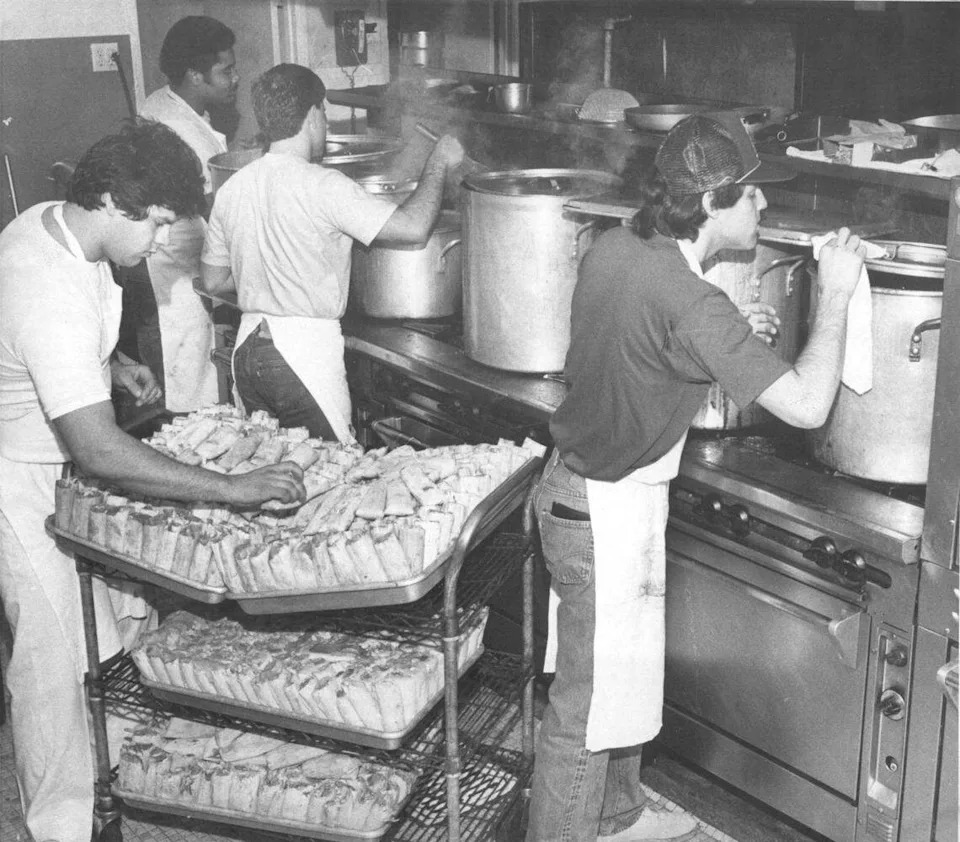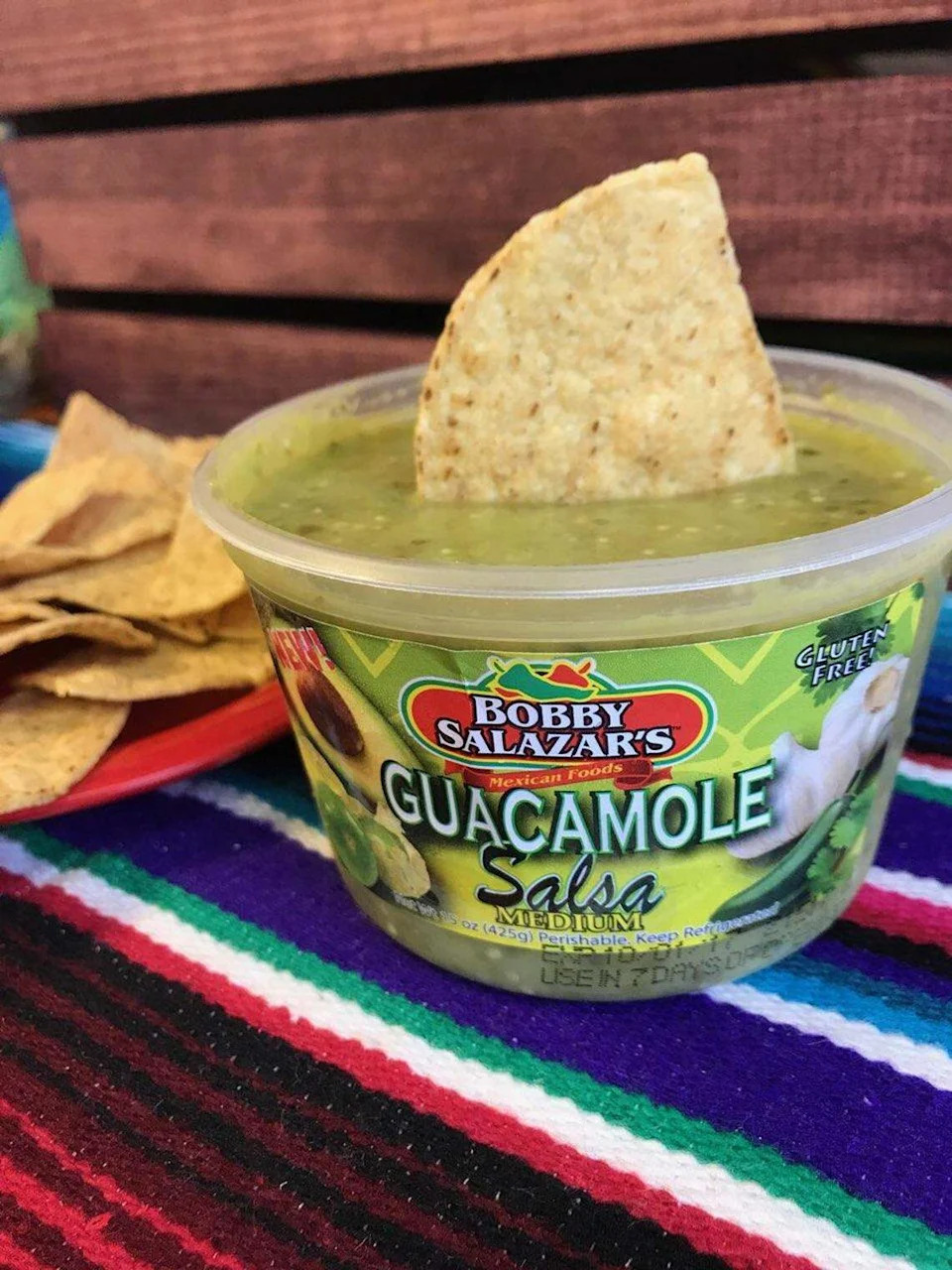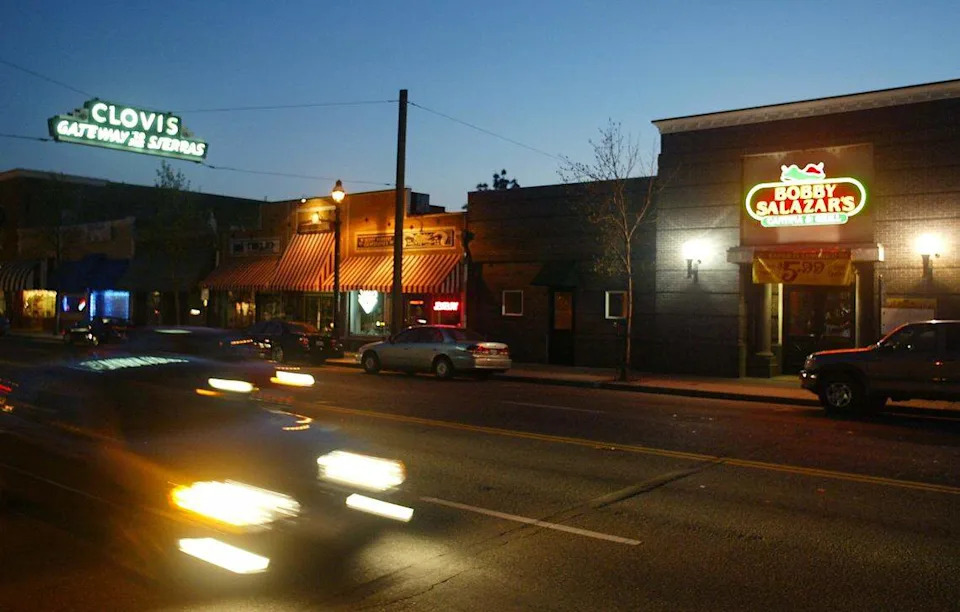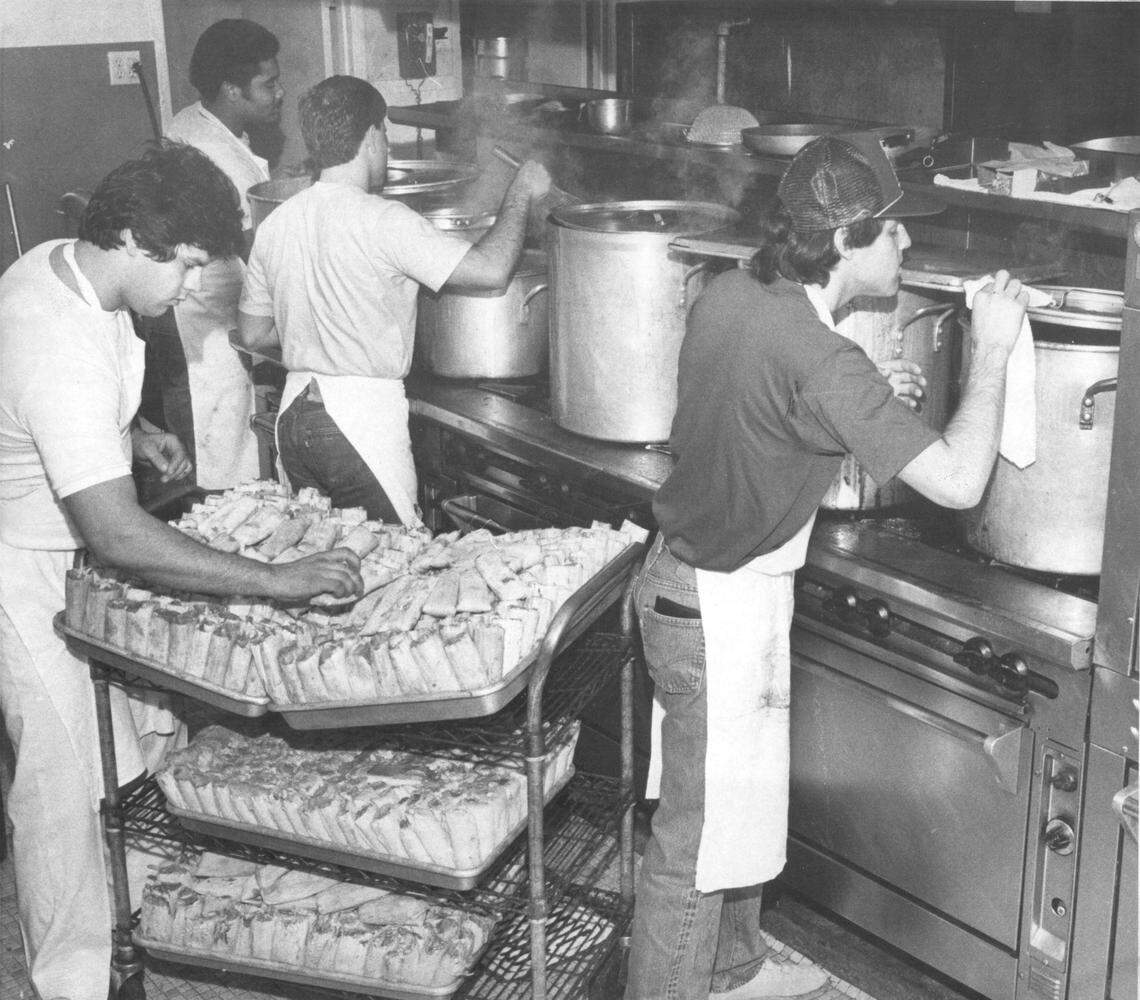For decades, Bobby Salazar has been one of the most recognizable names in Fresno’s restaurant scene.
In the 1990s, the now-63-year-old Valley native began cultivating a chain of Mexican restaurants and nightclubs. Within a decade, there were nearly two dozen Bobby Salazar’s locations across the Central San Joaquin Valley, bringing in an estimated $10 million a year in revenue.
At the same time, Salazar was name-branding a line of salsas and frozen meals that became ubiquitous on Fresno supermarkets shelves and is still available in major chains here and across the state.
By the 2010s, the man was a pop-culture personality, whose life inspired its own song (see: Brian Kenny Fresno’s ode “Bobby Salazar”) and a spot on the Fresno Beehive’s ValleyWho competition, where he competed against the likes of Audra McDonald, horror icon Sid Haig, and The Waving Lady from Highway 41. He lost to McDonald in the second round.
Controversy was part of his lore.
There have been court battles with franchise owners, former employees and lawyers, and a quieter split from his own family. His nightclubs in Clovis and Fresno were regularly visited by police. There were suspended dance permits and threats to remove liquor licenses.
There was also an arrest; two, now, if you count when he was taken into custody by federal investigators in September. Salazar has been accused of hiring the president of an outlaw biker gang to set fire to a restaurant location on Blackstone Avenue so Salazar could collect an insurance payout.
He’s currently out of jail and awaiting trail on a $1 million bond.
With the restaurateur back in the news, here are some other key moments in his story, culled from reporting in The Fresno Bee archives. Bobby Salazar did not respond immediately to requests from The Bee for comment for this story. He has declined to comment for other stories written this year about the charges against him and his pending trial.
Historic comments are taken from past Bee stories.

The family behind Sal’s Mexican Restaurant, pictured in this Fresno Bee file photo from 1983, is preparing about 4,000 tamales for others to eat. From left, Karl Salazar, James Nelson, Henry Salazar and his brother, Bobby, work in the Selma restaurant their late father opened decades ago.
The original Sal’s
Salazar may have built the brand, but the family’s restaurant legacy started in 1942.
That’s when his father, Salvador “Sal” Salazar, gave up picking peaches to build a taco stand out of spare lumber intended for a chicken coop. As told by the family, Sal, 17 and an immigrant to the U.S., climbed down from his ladder one day and proclaimed, “I have picked my last Elberta (peach).”
Simple as that.
His mother had already been making food for seasonal farmworkers in from Mexico, and together they turned Sal’s Place into a real restaurant and landmark in Selma.
Sal’s Mexican Restaurant opened in the middle of a residential neighborhood in 1973. The spot became an institution, with its colorful indoor murals, giant-sized “Fancy” burrito (which Sal invented around the same time) and holiday tamale orders.
The restaurant still operates from that location on Park Street.
For some, it’s the one true Salazar family restaurant.
The entire family took to the business, according to a 2024 profile on the Salazars for The Fresno Bee’s “Restaurant Royalty” series about Fresno’s independent restaurant entrepreneurs.
Bobby Salazar’s grandparents were key in helping establish Sal’s in Selma. His aunt (Sal’s sister) ran the Mexicatessen, a popular spot on Fulton Street in downtown Fresno, for nearly 30 years. His mother, Eleanor, ran the Selma restaurant following Sal’s death on Cinco de Mayo in 1980, and the four Salazar siblings (Bobby, Henry, Karl and Lorraine) each carried on the family business in some form.
While Bobby Salazar broke off on his own, Karl and Lorraine Salazar continued with the Sal’s name in Selma before expanding into Visalia, Madera and Fresno. The Visalia restaurant has since closed. Henry Salazar had his own restaurants: Fresh Mex Grill in Visalia and Salazar’s Grill and Bar in Kingsburg. Both restaurants ran for two decades before closing in recent years.
Bobby Salazar, on his own
Salazar got a taste for restaurants early, helping run Sal’s with his parents and brother Karl while his other siblings attended college in Los Angeles. His role only grew following his father’s death. He took on front-of-house duties while his brother ran the kitchen.
Bobby Salazar thought there was a better way.
“Our stronghold was that we knew how to cook,” he told The Fresno Bee in an interview in 2001.
“We didn’t know business.
“We needed to update equipment and make bigger quantities,” Bobby Salazar told The Bee in 2001.“I looked at other operations, and saw that we needed to change to a bigger scale, train people to cook. It was so primitive.”
The restaurant underwent a major renovation in the mid-80s and by the end of the decade, Bobby Salazar and his brother Karl decided to expand Sal’s to Fresno. Both were still living at home at the time.
That decision to expand split the family.
“We couldn’t decide how to do things together,” Bobby Salazar told The Bee.
So, he struck out on his own and, in 1990, opened two restaurants under the Sal’s name. The first was a 50-square-foot space in downtown Clovis that was connected to Jim’s Place. The second opened on Blackstone Avenue in a building that some still remembered as Kino Castillo’s Mexican Foods.
“It was just me by myself. Karl stayed with the family in Selma.”
Over several years, his restaurant holdings grew. By 1995, Salazar operated four restaurants, in Fresno, Clovis and Kingsburg, plus Dos Locos, a sports bar on Herndon and Cedar avenues. And he had plans for more, including a 15,000-foot factory where he would start making his own brand of salsa.
For several years, Salazar operated under a licensing agreement that allowed him to use Sal’s name, but it limited the number and location of restaurants he could open.
The restrictions prompted him to rebrand his restaurants, and in 1995, Bobby Salazar’s Mexican Restaurant and Cantina was born.
The company eventually expanded into frozen meals and built a $2 million, 17,000-square-foot building in an industrial park east of Highway 99 at Manning Avenue in Fowler. The building remains its corporate headquarters.

Guacamole salsa from Bobby Salazar’s.
The split put Bobby Salazar’s in direct competition with his siblings, who held the trademark to Sal’s Mexican Restaurant and was selling its own branded salsa at area grocery stores.
“It’s very sad,” Salazar said in a 1995 interview. “I really want to work with my family and not fight with them.”
At the time, he and his siblings mostly declined to comment on the rift, “attempting to avoid airing their family business publicly.”
But for those looking, it remained obvious.
When Sal’s Mexican Restaurant opened its mainstay Fresno location in 2001, The Fresno Bee headline read “Salazars: a family apart.” The subhead read; “But they say it’s not personal — just business.”
The story chronicled a “grand opening V.I.P. party” at a then-new location on Fresno Street and Alluvial Avenue.
The owners’ names graced the invitation, according to the story. “It was Eleanor, Lorraine and Karl Salazar — mother, daughter and son. The evening’s festivities, and the family operation in general, do not include Bobby.”
Salazar said at the time that he would have attended if invited. He wasn’t. A Sal’s spokeswoman told The Bee that was by design, without elaborating. Salazar and sister Lorraine Salazar said they competed without antagonism, that “they are brother and sister doing their own things.”
History of legal troubles
Salazar’s business strategy shifted in the late 1990s, and he began selling off restaurants and looking to create franchise opportunities.
This allowed him to keep his name and brand alive, while divesting himself from the daily operations, something required by the Department of Alcohol Beverage Control following Salazar’s arrest in 1997 and a felony conviction for fraud and possessing stolen property.
That same year he was negotiating a lease to set up on Olive Avenue in the Tower District.
Around that time, Salazar got swept up in a car-theft and chop-shop operation after arranging to have his pickup “stolen.” He had reported that his truck was stolen near Selland Arena, where he said he had parked it to attend a basketball game. He filed a police report and made an insurance claim.
When the truck was discovered during a separate auto-theft investigation, the suspect told police it had actually been given to him by Salazar. In a police affidavit, Salazar later acknowledged “arranging to leave his pickup” with the keys inside, according to The Bee. Once it was taken, Salazar filed a false police report and ordered his bookkeeper to file an insurance claim. The truck was worth $20,000, on which Salazar told police he was still making payments.
Salazar initially claimed innocence in the case, but he ultimately pleaded no contest to felony charges of insurance fraud and possessing stolen property and at one point testified against the suspect in the auto ring case, according to The Bee.
He escaped prison time in the case, but was sentenced to a year in jail and 600 hours of community service, though that was lowered to a year in a work furlough program after 50 or so business and community leaders wrote letters to the judge. They argued Salazar shouldn’t be jailed because he employed some-300 people and had contributed in various ways to charities and the community.
Following the convictions, the state’s Department of Alcohol Beverage Control threatened to revoke the liquor licenses at Salazar’s restaurants. “This settlement just accelerates his master plan to franchise his restaurants,” Salazar’s attorney said at the time. “Bobby is a good person and an entrepreneur. He has other plans in the works.”
Salazar could not escape the whispers about him, however, and had trouble obtaining business financing from local banks. He did manage to maintain some of his stature as an astute businessman.
Just months after his sentencing, The Central Valley Hispanic Business Conference named Bobby Salazar’s the Hispanic Business of the Year. In a speech delivered at the meeting, Salazar said he could have closed his businesses and moved away, but he chose to stay.
“For me to survive and continue to do what I’m doing says a lot.”

Bobby Salazar’s in Old Town Clovis is a bar and restaurant. Founder Bobby Salazar is part of the Salazar family that also separately runs Sal’s Mexican Restaurants.
In the mid-to-late 2000s, the name Bobby Salazar’s became associated with another kind of controversy — the burgeoning nightlife scene in Clovis.
Bobby Salazar’s restaurant, which started off situated next to the famous country bar Jim’s Place, took over the space with a renovation in 2003 and became one of several nightclubs (along with Old Town Saloon, Henry’s Cantina, The Cellar, Kimmie’s and 500 Club) within walking distance in Old Town Clovis.
As chronicled by former police chief Jim Zulim in the Clovis Independent in 2007, “Clovis Avenue … you could probably change the name to Stagger Lane.”
According to a story in the now-defunct newspaper, Clovis City Council revoked Bobby Salazar’s dance permit that year after police shut down an “out-of-control silk-pajama party at the nightclub.” The party broke several city codes; ones for indecency and sexual misconduct. It also violated the restaurant’s alcohol license and did not follow the conditions of the city-issued dance permit, according to the Clovis Independent story.
And it wasn’t the first time the restaurant had come under scrutiny. In 2004, police revoked Bobby Salazar’s dance permit for 15 days for drunk and disorderly conduct from patrons. Over six months that year, police made 26 arrests for incidents reportedly connected with the establishment.
“Salazar apologized to the council and asked for a second chance. He said he was out of town when the event took place and that it was organized by his cousin who used the facility to host a dance party,” the paper wrote in 2007.
Salazar has been accused on at least two occasions of threatening others with firebombs. Some accusations against Salazar in 2021 parallel those from his most recent arrest.
Back in 2021, a former employee sued Salazar for wrongful termination, along with harassment, not providing meals and rest breaks. In the lawsuit, the employee’s lawyer alleged that Salazar was involved in what was, at that point, a series of fire bombings.
That included an attempt at the lawyer’s office in northeast Fresno in 2020, according to the suit.
Salazar denied the accusation at the time, telling The Bee, “There is no way I would do that. I don’t even know people who would do that.” He later filed a defamation suit against the lawyer.
Then, on April 2 of last year, the Bobby Salazar’s restaurant on Blackstone and Princeton avenue was set on fire. The restaurant, which was a franchise location, had shut down a month earlier. That same month Salazar had increased insurance coverage on the building by $102,000, according to investigators.
He collected nearly a $1 million insurance payment from the fire, prosecutors have pointed out.
In an 18-page criminal complaint, the Bureau of Alcohol, Tobacco, Firearms and Explosives said it was Salazar’s “modus operandi” to use fire to solve business problems and alleged new connections to a 2020 firebombing of the home of his former brother-in-law.
If convicted for the latest charges, Salazar could spend up to 30 years in a federal prison. He’s due back in court on Oct. 29
What’s next for Bobby Salazar’s food empire
It is unclear the exact impact Salazar’s current legal trouble will have on his businesses, which includes two restaurants (one in the Tower District and another on West Shaw) plus Lucy’s Lounge (a bar he opened in the Tower District in 2017), and the salsa manufacturing business in Fowler.
The company’s webpage also lists restaurants at Champlain and Perrin avenues, in downtown Clovis and at Herndon and Fowler.
Veteran defense attorneys have told The Bee that his case will be expensive to defend.
Already, Salazar has put up collateral for a $1 million bond to stay out of jail and hired a federal criminal defense attorney (an ex- DEA narcotics investigator from Atlanta). He will likely also need to hire investigators and experts to review the government’s case, the lawyers told The Bee.
And at least one franchise location is cutting ties with Salazar. In a social media post earlier this month, Suzie Riofrio announced the franchise for her Bobby Salazar’s location, in the Washington Square shopping center at Champlain Drive and Perrin Avenue, “was being terminated.”
The restaurant will continue to operate in the same location, but under a new name — Mama Iguana’s.
In a news brief about the franchise’s opening in 2001, listed under the tag “Salsa Lady,” The Fresno Bee reported that Riofrio had been a friend of the Salazar family for decades, that she had worked at Sal’s in Selma, and that RioFrio was the person who originated Bobby Salazar’s salsa.
With the restaurant name change, Riofrio is hoping to create distance between her restaurant and the Salazar brand. “We are completely separate businesses,” she told The Bee in September, following Salazar’s arrest.
“I am not giving up my livelihood and have no intention of closing,” she said, while hinting at the possibility of a name change. “I have to do everything I can to protect my business and my employees.”
It’s unclear if other franchises will follow suit.
So far, the Salazar-owned restaurants remain open and operating.
Early on, Salazar was defended by a public attorney until earlier this month. He’s expected back in court on Oct. 9, though assistant U.S. Attorney Robert Veneman-Hughes told The Bee he expected the proceedings to be delayed by the change in attorneys.

